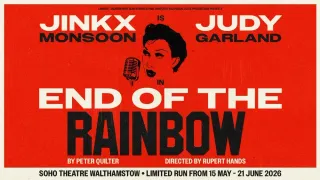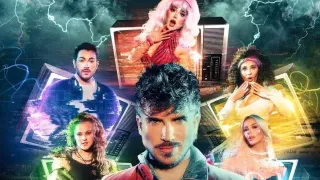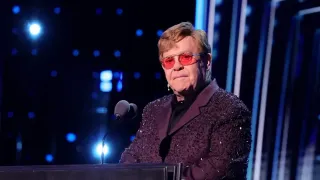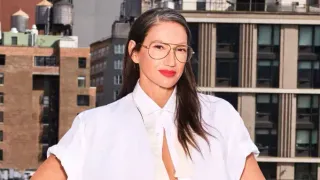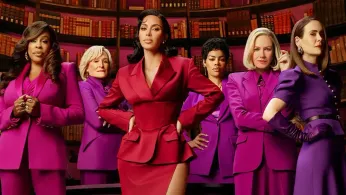
3 hours ago
Against All Odds (and Reviews): Why Queer Audiences Should Care About “All’s Fair” Getting a Second Season
READ TIME: 4 MIN.
In a TV landscape where most shows are lucky to survive a single season—especially those that draw the kind of critical fire reserved for truly divisive pop culture—Ryan Murphy’s “All’s Fair” has emerged not just unscathed, but officially renewed for round two. If you’re still catching up: yes, that’s the glossy, headline-magnet legal drama with Kim Kardashian front and center, Glenn Close running the show, and Sarah Paulson chewing scenery like she’s at an all-you-can-eat buffet. And against all odds, Hulu has doubled down on the drama, greenlighting a second season even as critics sharpen their knives .
Let’s not sugarcoat it: “All’s Fair” has been savaged in reviews. One commentator dubbed it “mindbending horror, ” “a monument to greed, vanity, and avarice, ” and “clumsy, condescending girl boss Fantasia” . Another likened Murphy’s output to a “white, openly gay analogue of Tyler Perry” and called Kardashian’s acting “mortifying but mercifully rare” . Even fans of Murphy’s previous camp spectacles have found themselves both transfixed and aghast.
Yet to dismiss “All’s Fair” as mere “trash TV” is to miss the point—and, perhaps, the pleasure. For LGBTQ+ audiences, Murphy’s brand has always thrived on a certain joyful excess: larger-than-life characters, found-family dynamics, and the kind of melodrama that’s just as likely to wink at the audience as to clutch its pearls. “All’s Fair” is no exception. It’s about an all-female law firm specializing in divorce cases for the ultra-wealthy—a premise that’s both deliciously soapy and, in its own way, deeply subversive .
What’s in it for queer viewers? First, the cast itself reads as a who’s-who of LGBTQ+ icons and allies: Sarah Paulson, perennial Murphy muse and out lesbian; Glenn Close, whose own career is studded with queer-coded roles; and Murphy himself, whose “prestige-y trash” is often a Trojan horse for radical visibility . The show’s synopsis hints at more than just courtroom drama: “Fierce, brilliant, and emotionally complicated, they navigate high-stakes breakups, scandalous secrets, and shifting allegiances – both in the courtroom and within their own ranks. In a world where money talks and love is a battleground, these women don’t just play the game – they change it” .
But the real magic—and, arguably, the real queerness—lies in the “chosen family” motif. As previously reported on EDGE, the women’s deep, complex bonds blur the lines between friendship, rivalry, and something more intimate, echoing a central theme in queer storytelling: the family you build, not the one you’re born into . In a world that often punishes women—and queer people—for being “too much, ” “All’s Fair” is gloriously, defiantly extra.
Of course, not all representation is perfect. Murphy’s shows have long walked a tightrope between camp celebration and stereotype, and “All’s Fair” is no exception. Critics have called out the show’s tendency to reduce its characters to “sad, miserable, hate-filled lives” or “wives who have a higher chest size than IQ, ” and viewers seeking complex, nuanced portrayals of queer and female experience might well be disappointed . Yet there’s something to be said for visibility, even—maybe especially—when it’s messy.
Consider Glenn Close’s own ambivalence: “I had never done a Ryan show, so, it took me a little while to kind of get it. But then I got it. And started having a really wonderful time, but also connecting with these women on a personal basis, you know, and looking forward to seeing them every day was a very, very great blessing for me on this project” . For all the show’s excesses, the sense of camaraderie and connection among the cast—and, by extension, the characters—feels real.
For LGBTQ+ viewers, that sense of belonging, of carving out joy and solidarity in a hostile world, is no small thing. It’s no wonder “All’s Fair” has found a devoted audience, even as the reviews roll their eyes.
So, what can we take from “All’s Fair” being renewed, despite the drag reviews? Maybe it’s that, in a media climate obsessed with perfection and polish, there’s still a place for stories that are flawed, over-the-top, and unapologetically queer in their sensibility.
The show’s renewal is a reminder that sometimes, the “failures” of mainstream culture—shows that critics love to hate—are exactly where LGBTQ+ viewers find themselves reflected: loud, vulnerable, a little bit chaotic, and entirely unashamed. As Murphy’s earlier work has shown, there’s power in taking up space, even when that space is “mindbogglingly stupid” or “cringefully camp” . Sometimes, the best queer TV is the kind that dares to be both.
So yes, “All’s Fair” is back for another season. And whether you tune in for the drama, the diva showdowns, the accidental queer moments, or just to see what Kim Kardashian will do next, know this: in a world still wrestling with who gets to be seen and heard, sometimes the messiest stories are the ones that matter most.
